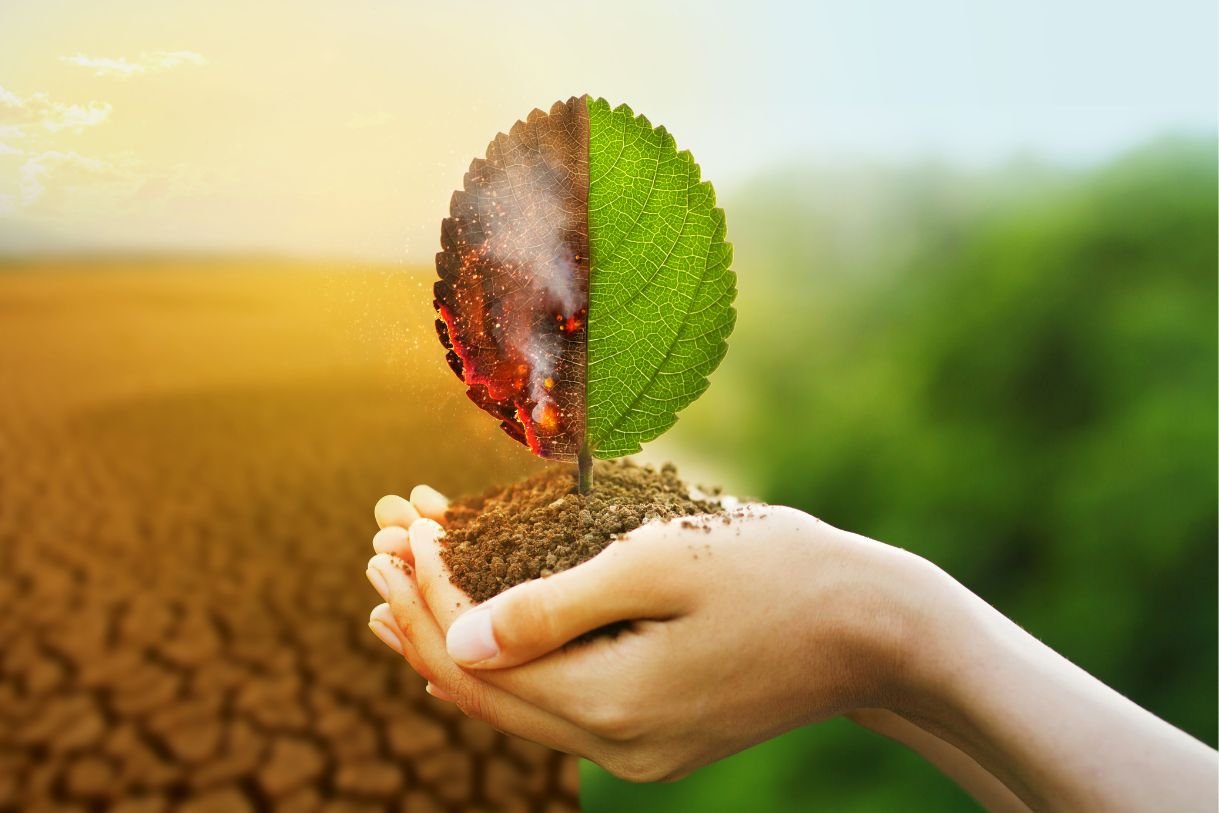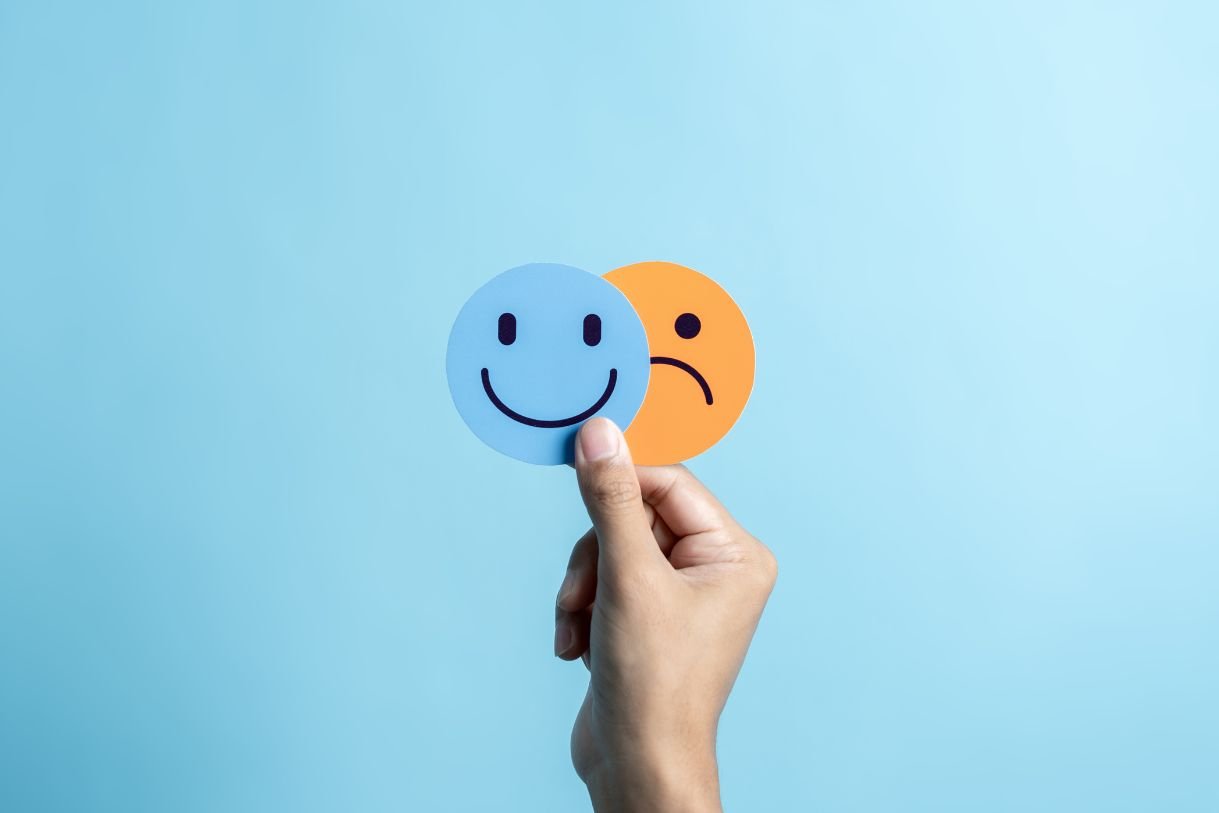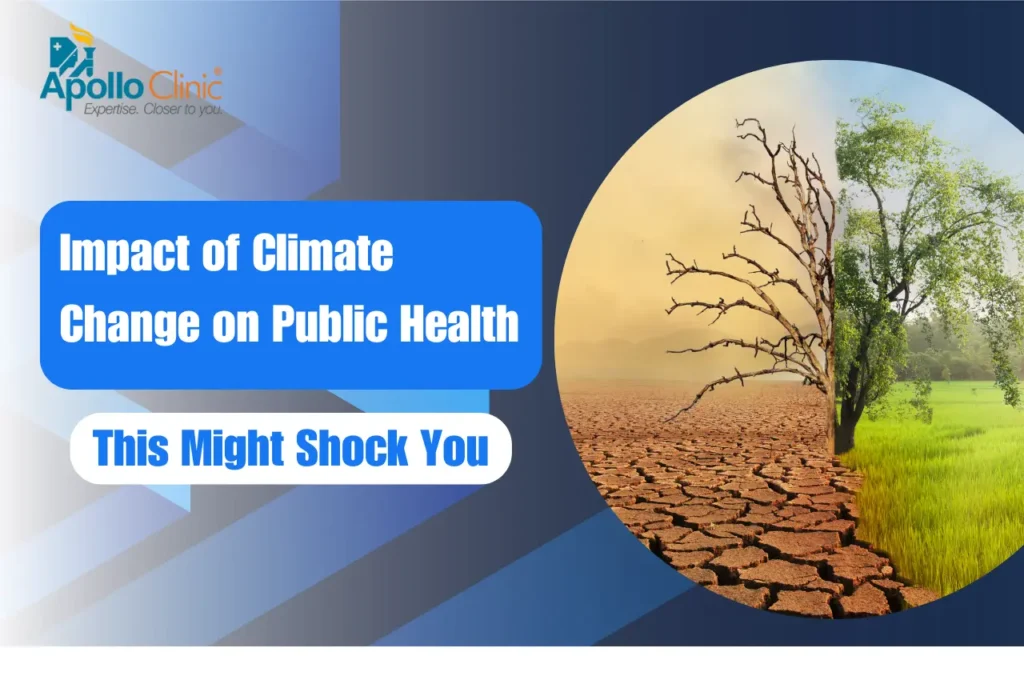The Impact of Climate Change on Public Health Might Shock You
According to the World Health Organisation, about 3.6 million people across the world live in zones susceptible to drastic climate change. This leaves us with nothing but a question: is it harmful for our health? Can climate be the cause of our poor health? Tag along as we go over the impact of climate change on public health.
The health effects are greatest in low-income nations and small island developing states (SIDS), even if their relative contributions to global emissions are negligible. Compared to less sensitive areas, the death rate from extreme weather events during the past ten years was fifteen times higher in vulnerable regions.
Climate Change and Heat-Related Illnesses

Higher average temperatures will result in hotter days as well as longer and more frequent heat waves. Up to thousands to tens of thousands of heat-related deaths annually during the summer months in the United States will result from these changes by the end of the century.
The lower than expected decrease in deaths from the cold over the winter won’t make up for these deaths. Adaptive measures, such as increased air conditioner use, should, nevertheless, lessen the anticipated rise in deaths from severe heat.
Effect on Air, Water, and Food

Extreme and drastic changes in the climatic conditions across affect the quality of air, water, and food. Global warming is raising temperatures that makes harmful algae bloom that can contaminate the air and make people sick.
Rising temperature also increases rainfall, storms, and flooding that contaminate groundwater and other water bodies. They add bad bacteria and viruses to the water that cause gastrointestinal diseases and diarrhea.
The effects of climate change on food are very different. Some foods might do better with longer growing seasons, but others might do worse. When put together, these changes will make it harder for farmers to grow foods that make money and keep them alive. Worms may also come out more often in warmer places, and some foods may not be able to grow there.
Some people may find it harder to get safe, healthy food because of this. Climate change may also make people more likely to come into contact with germs that can make them sick, like Salmonella or E. coli.
Climate Change Effects on Mental Health

It is hard to imagine for us that climate change can affect our mental health too. But, as it turns out, it does. Studies by numerous climatologists have shown that long-term climate changes can have drastic effects on people’s moods and mental health triggering depression, anxiety, and other problems.
Apart from this, people caught in the disasters triggered by nature go through a lot that affects their life and mental health. Floods and rainfall make people lose their houses, crops, and other properties that lead to post-traumatic stress disorders, anxiety, and sometimes even chronic depression.
Climate-Change Induced ‘Ticks and Bugs’ Problems

Since it’s been warmer, ticks can now live in more places. Lyme disease, which can last for a long time if not treated properly, may be spread by ticks. In addition, warmer weather makes it easier for mosquitoes to breed.
Rapid climate change is having long-lasting effects on people and natural areas, and it is also spreading diseases that are spread by insects. As temperatures rise, pests, illnesses, and disease-carrying insects do better in farms. So, climate change has already made it easier for some infectious diseases to spread, such as Lyme disease, diseases that are spread through water, and diseases that are spread by mosquitoes, like malaria and dengue fever.
In terms of health, fleas and bugs are more common in the warmer months, and malaria is also common almost everywhere all year long. We should do everything we can to limit global warming and cut down on greenhouse gas emissions so that the spread of contagious diseases is lessened.
So, What is the Solution?
Now we are posed with the question-what can we do about this situation? Climate change cannot be controlled. But, can we control the effects it is having on our health and the functioning of our ecosystem?
There are many ways that communities, healthcare facilities, and people can lessen the effects of climate change on human health. Here are some actions:
1. Build a Community to Reduce Damage
It is good to have a community to support you during natural disasters and the diseases caused by them. Having a community to support you reduces mental health issues like depression and anxiety.
2. Seek a Healthcare Specialist Often
Climate change or the surroundings where you live might be making you sick. Talk to your doctor about it.
3. Go Green
Green roofs, greenways, trees, and other forms of green infrastructure all help cool cities and keep them from flooding by absorbing rainwater. They also have perks, like making the air cleaner and giving animals a place to live. Therefore, opting for greenways can reduce the impact of climate change on public health to a great extent.
4. Protect Yourself from Insect-Infections
Every year more than 700,000 people die due to vector-borne diseases. When you’re outside, wear long pants and sleeves if you can, and use an EPA-approved bug spray. Check to see if Lyme disease and West Nile virus are spreading near you or in the places you plan to visit.
5. Use Clean Energy as Much as Possible
Putting money into clean energy can help us deal with climate change better and save money at the same time. Greenhouse gases that cause climate change are also cut down with clean energy.
Bottom Line
Climate and weather are a big part of our lives. They support our everyday lives and our health. It provides food, water, and air for us. Therefore, when it changes, our health and everyday life is affected adversely.
So, it is important that we keep track of climate change and get health-related help wherever required. We are in the middle of a drastically changing environment. Therefore, we have to make sure that we are well-protected.





